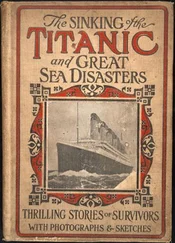Unlike Bakunin, however, Nietzsche did not believe that law or morality could be derived from nature. Nature is entirely arbitrary and contingent: Lord Chance rules. Indeed, Nature is so disordered that given infinite time, finite space and constant energy in the world, Nietzsche argued, everything is likely to recur eternally. In this scheme of things man appears as a ‘thoughtless accident’, standing on a rope stretched over an abyss. His mind and body are two aspects of one being. The will, not reason, is paramount and determines both his thought and action. In Nietzsche’s view of history there is no rational pattern or moral purpose to be discovered.
The problem for Nietzsche was to find meaning in a godless and arbitrary world based on chance and eternal recurrence. But he did not give into nihilistic despair. In our own lives, we are free to decide whether we want to be sickened or exhilarated by the journey, whether we want to follow the herd and act out inherited beliefs or to create our own life and values. Coming from nowhere, and going nowhere, we can nevertheless create ourselves and shape the world around us.
As in nature so in art: out of chaos human beings can create order. At first Nietzsche called the emotional element in life and art ‘Dionysus’, and its antithesis ‘Apollo’. He saw Greek tragedy as the upshot of Apollo’s harnessing of Dionysus, that is to say the creative force overcoming the ‘animal’ in the individual. Dionysus came to epitomize the sublimated will to power, and was therefore synonymous in Nietzschean vocabulary with übermensch , the man in whom the will to power is sublimated into creativity. 26
What most characterizes Nietzsche’s work is his libertarian insistence that the individual can throw off inherited values and beliefs and create his own. Like Stirner, he recognized that values are not given by God or nature but are human creations: every people has its own language of good and evil. While all moral codes are relative, their common element is the will to power.
Nietzsche perceptively saw that vengeance or resentment is at the core of most moral codes, which reveal themselves in their stress on punishment. He also recognized that public opinion, which many anarchists rely on to replace law, inevitably checks the individual from realizing himself: the ‘You’ of the crowd is older than the ‘I’. In these circumstances, the love of one’s neighbour is often a vicious form of selfishness, the result of bad love of oneself. In modern mass society, ‘One man runs to his neighbours because he is looking for himself, and another because he wants to lose himself.’ 27
In higher and mixed cultures Nietzsche maintains that master and slave moralities have developed, and are often juxtaposed within one person. The rulers determine the master morality which exalts those states of being which determine the order of rank, such as severity and power. The ruled create a slave morality stressing pity, humility and patience to help them endure the burden of existence. Master and slave have contrary definitions of morality: according to the master, the ‘good’ man inspires fear; according to the slave, the ‘evil’ man inspires fear while the good man is harmless. 28 But Nietzsche would have us transcend these types of morality; the emancipated person goes beyond existing definitions of good and evil and creates his own anew. In his own moral revaluation, Nietzsche himself valued honesty, courage, self-discipline, strength, and generosity.
Nietzsche argued that our fundamental drive is the will to power. Even the pursuit of truth is often a disguised will to power. Nietzsche’s concept of the will to power is one of his most misunderstood doctrines. He celebrates not power over nature or over others but over oneself. He considered the will to power over others to be the will of the weak: the really strong person seeks power only over himself in order to forge his own destiny. The only person one should obey is oneself, and great power reveals itself in self-mastery and is measured by joy. The will to power is therefore an ‘instinct to freedom’, to transcend and perfect oneself.
Nietzsche calls the developed person übermensch . It is usually translated as ‘superman’ but a more accurate translation is ‘overman’. The ‘overman’ overcomes himself and sublimates his will to power into creativity. His greatest creation is himself. He is able to face the arbitrary nature of the world without pity, nausea and fear, and affirm life with all its suffering. Where for Hobbes power is essentially a means of security, for Nietzsche it is ‘the state of being that man desires for its own sake as his own ultimate end’. 29
Nietzsche’s ideal of transformed humanity is that of the individual who overcomes his feelings of pity and terror and makes a work of art out of himself. His call ‘You must come who you are’ is a call for every individual to reach his or her full stature, to realize their complete potential as an act of creative will: ‘ to become them who we are —the new, the unique, the incomparable, those who give themselves their own laws, those who create themselves’. 30 The emancipated human being is an egoist concerned with developing himself, but he helps the unfortunate not out of pity but because he overflows with generosity and strength. He values freedom, creativity, joy, and laughter. He lives dangerously and makes a Dionysian affirmation of life. His ultimate ideal is to realize in himself the ‘eternal joy of becoming’. 31
Freedom for Nietzsche is ‘the will to self-responsibility’. He thought the struggle to achieve freedom more important than its attainment since it brings out the best in people. It can be measured in individuals and nations by ‘the resistance which has to be overcome, by the effort it costs to stay aloft ’. 32 Freedom is something one has and does not have, something one wants and achieves. To expand human freedom is a never-ending process of struggle in which one seeks mastery over desire for mere happiness or well-being. In politics and art, Nietzsche observed that the claim to independence, to free development, to laissez aller is advanced most heatedly by precisely those for whom ‘no curb could be too strong . Nietzsche thus understood progress in the sense of a return to nature but it is not a going back but a ‘ going-up into a high, free even frightful nature and naturalness, such as plays with great tasks, is permitted to play with them.’ 33 The ideal for Nietzsche is complete self-creation and self-determination, to become a ‘self-propelling wheel’ who transforms chance into conscious intention. 34 The symbols of Zarathustra are the eagle and the serpent, creatures of power and knowledge who fly the highest and creep the lowest; a tree on a mountainside, the roots of which plunge deeper into the earth as the branches reach for the sky; and a laughing lion, a combination of strength, control and joy.
With these assumptions, it is no surprise that Nietzsche despised his contemporaries. His critique of European culture and politics is unparalleled in its spiteful vehemence:
Just look at these superfluous people! They steal for themselves the works of inventors and the treasures of the wise: they call their theft culture – and they turn everything to sickness and calamity.
Just look at these superfluous people! They are always ill, they vomit their bile and call it a newspaper. They devour one another and cannot even digest themselves.
Just look at these superfluous people! They acquire wealth and make themselves poorer with it. They desire power and especially the lever of power, plenty of money – these impotent people!
See them clamber, these nimble apes! They clamber over one another and so scuffle into the mud and the abyss.
Читать дальше












